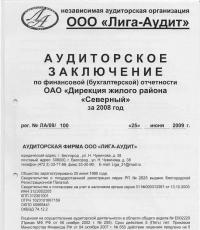Конспект урока по английскому языку на тему. Конспект занятия по английскому языку на тему «Приветствие» Видео
Описание материала: Предлагаю Вам конспект урока по теме: “Идеальное место для путешествия ” Этот материал будет полезен для обучающихся 8 класса. Урок направлен на воспитание уважительного отношения к людям разных культур и стран.
Цель урока: контроль усвоения и активизации пройденного лексического материала.
Задачи урока:
1) практические: развитие лексико-грамматических навыков речи; развитие монологической и диалогической речи умение подготовить связанное высказывание по теме, выразить свое отношение к прочитанному; развитие умения слушать и понимать иноязычную речь на слух.
2) общеобразовательные: расширение общего кругозора учащихся расширение словарного запаса.
3) воспитательные: формирование стремления к совершенствованию своей речевой практической деятельности; совершенствование коммуникативной культуры ученика; воспитание уважительного отношения к другим культурам; воспитание и уважение к людям разных культур и стран; воспитание внимания, умения слушать друг друга.
4) развивающие: развитие способности к сравнению и сопоставлению, формулированию выводов из прочитанного и услышанного; развитие способности к подбору выражений необходимых для данной ситуации.
Ход урока
1. Приветствие (1 минута)
T: Good afternoon, boys and girls! Glad to see you! How are you today?
P: I am fine (good, excellent, great, OK, all right, so-so) thanks.
2. Организационный момент (1 минута)
T: Who is on duty today? Who is absent today? What is the date today? What is the day of the week? What is the season now? Do you like winter? What is the weather like today?
P: I am on duty today. All are present. Today is …. Today is …. It is winter. Yes I do. No I do not. Today is (frosty, cold, snowy, windy, sunny, dark…)
3. Фонетическая разминка (2 минуты)
T: When the weather is wet,
We must not fret.
When the weather is cold,
We must not scold.
When the weather is warm,
We must not storm.
But be thankful together
Whatever the weather.
Pupils read this poem all together, and then read it one by one.
4. Опрос домашнего задания (10 минут)
T: At home you must prepare arguments for and against tourism. Ex. 2 -3 page 54-55.
P: Good points: to discover new places, to teach people about art and culture, to improve knowledge of foreign languages, to relax, to have a fun.
Bad points: to destroy ancient cultures and traditional way of life, do not respect other countries and people, to pollute the water.
5. Сообщение целей урока (1 минута)
T: Today we are going to discuss what the ideal place for travelling is. You will read and listen to different people’s opinions. Then you will share your ideas about the ideal holiday.
Pupils are listening very attentively.
6. Аудирование (5 минут)
T: Listen to the text. Be ready answer the questions.
People like travelling. They travel on business or for pleasure. If you want to go to Britain you can do it in different ways. You can travel by train, by plane or by car. People have to cross the channel between England and France . Tourists usually go by plane. It is more comfortable and fast. There are two major airports in England: Heathrow and Gatwick. They welcome passengers from different countries overseas.
1. People like travelling.
2. People travel on business.
3. People go to Britain by plane.
4. Planes are not fast and comfortable.
5. There are two major airports in the UK .
1 - yes, 2 - yes, 3 - yes, 4 - no, 5 - no
Pupils listen to the text and try to understand.
7. Работа с текстом диалога (6 минут)
T: Open your books at page 56 ex.5. Mark and Brandon are talking about their holidays. Look at the photos and say what countries are they from?
Now put their conversation in order.
P: Now check your answers.
I think one of them is from Great Britain and other is from the USA .
Pupils read the dialogue and put their conversation in order.
8. Развитие навыков устной монологической речи (8 минут)
T: Answer my questions.
What places do the boys mentions as ideal for travelling? Why?
What do the boys think about travelling with parents?
What did the teenagers enjoy most about their holidays?
P: Brandon thinks Disneyland is the ideal place.
Mark says that it is Nottingham . They went rock climbing and visiting some old castles.
They like to travel with parents. They enjoy the weather, people and different kinds of activities.
9. Проведение опроса по теме (7 минут)
T: Travelling is really the best way of having a rest, visiting other countries, meeting new people. And now tell me, please, what is ideal place for travelling for you?
P: I am sure that London is ideal place for travelling, because you can improve your knowledge of English and enjoy his sights.
P: I think St.Peterburg is ideal place for travelling, because it is very beautiful city with lots of interesting places, which connected with our history, beside I want to see “white nights”.
P: To my mind ideal place for travelling is the South of Russia, because you can swim on the Black Sea and hiking snow-capped mountains at the same time.
P: I’d like to take rucksacks and walk in the countryside. It is ideal place for travelling, because you can breathe fresh air, enjoy nature.
P: Turkey, I think, is ideal place for travelling, because the clime is hot. And you can take sunbath and swim on the sea all days.
10. Составление вопросов (6 минут)
T: How are you going to spend your next summer holidays?
Make up questions and put down them.
1. (summer, where, going, are, next, you, for, your)
2. (would, to choose, way of travelling, like, what, you)
3. (to stay, where, going, you, are)
4.(do you, what, there, would)
5.(going, who, with, you, are)
P: 1. Where are you going for your next summer?
2. What way of travelling would you like to choose?
3. Where are going to stay?
4. What would you do there?
5. Who are you going with?
11. Домашнее задание (1 минута)
T: At home you must answer these questions.
Pupils write down home task for the next lesson.
12. Подведение итогов урока (1 минута)
T: Today we spoke about different countries and places. I saw that every one has own opinion about travelling. Now look at the blackboard read the proverbs and try to find Russian equivalents to them.
P: East or West home is best.
There is no place like home.
So many men, so many minds.
Pupils try to guess the meaning of these proverbs.
13. Оценки (1 минута)
Teacher puts marks for pupils’ work.
Открытый урок по английскому языку с применением Интернет-технологий (8класс).
Тема: “What manners do you follow?”
Подготовила:
Учитель английского языка
Пялкина Оксана Сергеевна
МБОУ СОШ №12 г.Красногорск
2011г
Аннотация к уроку.
Урок подготовлен и проведен учителем английского языка МОУ СОШ №12 г. Красногорска Пялкиной Оксаной Сергеевной. Данный урок проводится по плану в соответствии с тематическим планированием. Объем нового материала оптимальный по учебной программе, базируется на уже имеющуюся в опыте учащихся систему знаний. На данном уроке использовались различные методические приемы, методы и средства: работа в группах, беседа, фронтальная работа, индивидуальная работа. Методические приёмы соответствовали возрастным особенностям учащихся, целям, поставленным в начале урока.
В ходе данного урока использовались компьютеры, интерактивная доска проектор и Интернет. Основные этапы урока сопровождались слайдами заранее подготовленной презентации. Для оформления презентации были использованы ресурсы Интернета.
Данный урок может быть полезен учителям английского языка, имеющим определенные трудности с учениками с низкой мотивацией, так как использование ИКТ на уроке значительно повышает уровень мотивации учащихся.
План – конспект урока.
Цели и задачи :
Социокультурный аспект – знакомство с особенностями характера и манерами британцев.
Развивающий аспект – формирование способности к сравнению и сопоставлению, к формированию выводов из прочитанного и услышанного, развитие репродуктивных и продуктивных речевых действий с помощью подбора выражений, адекватных ситуации.
Воспитательный аспект – воспитание уважительного отношения к собеседнику, стране изучаемого языка и людям в ней проживающим. Стремление проявлять интерес, правилам этикета, желание посмотреть на себя глазами иностранцев.
Учебный аспект – развитие лексико–грамматических навыков говорения.
Речевой материал
– продуктивный: лексический. Open and friendly people, polite and well mannered, conservative, practical and careful, emotional but reticent, charming, serious people, have a lovely sense of humor ;
2) Активизация в речи учащихся Present Simple.
Оснащение урока - компьютер, Интернет, интерактивная доска, картины эпохи Рококо.
Ход урока.
1) Оргмомент, объявление темы и цели урока
T : Good morning , boys and girls! I’m glad to see you! Today we are going to talk about British people . The topic of today’s lesson is: “ What manners do you follow”
You will train to ask , to answer questions , and learn some more interesting things about the Brits and their mode of life .
(Урок начинается с презентации Power Point. Первый слайд – тема урока.)
2) Pronunciation
- T: Would you like to review some words after me? (Далее – слайд с табличками)
- T: Which word is different? (Дети называют лишнее слово в каждой табличке)
Respect Treat Score Competence | Reserved Reticent Prudent Violence | Conservative Generous Polite Happiness |
Proverbs.
- Custom is a second nature.
- All not gold that glitters.
- Handsome is handsome does.
- Активизация лексических единиц.
T: When people think of the British they picture in their minds different things.
- What do you usuаlly think of when you think of the British?
(Anticipating , please!)
(Учащиеся работают по 3–4 человека в группах и строят небольшие диалоги).
P1 P2 – What/who do you usually think of when you think of Britain?
P2 P1 – What do you picture in your mind when you think of the British? Etc…
T: Sometimes Great Britan is called a strange island because some customs and manners differ from those accepted in other countries. Do you think it is strange to have different customs and manners?
Иногда Британию называют странным островом, т.к. традиции этой страны отличаются от традиций других стран.Давайте, обратимся к нашим учебникам и выполним упр.№4 на стр.88. Задание:
Queue in a line waiting for a bus.
Greet your friend as many times as you meet him/her during the day.
Shake hands each time you meet your friend.
Take your shoes off as soon as you enter someones home
Wait patiently when a group of people have queues for service.
Jump the queue waiting for a bus.
Keep your distance talking to a person. Stay at least an arm’s length away.
Bump into another person.
T: Children, let’s make your proposals about british manners and Rustam will try to find some more interesting facts about other manners of British people in the Internet.
Итак, ребята, давайте выскажем наши предположения по поводу Британских манер, но сначала давайте – ка вспомним какое время мы используем когда хотим выразить обычное, регулярное, повторяющее действие в настоящем времени? А какие есть слова-сигналы у этого времени?
Ok! That’s good!
(Учащиеся по очереди высказываются по образцу, указанному на очередном слайде):
The British usually…
The British never…
The British don’t…
Sometimes British can…
T: So, children, you’ve made your proposals. Let’s listen to the facts about british manners and traditions.
(ученик, работающий с Интернетом зачитывает факты и сам же их переводит).
2) Работа с интерактивной доской.
T: So, children, now we know a little bit about british manners and behaviour. What are they?Let’s make a small scheme on our interactive blackboard.
(Каждый ученик выходит к интерактивной доске и пишет по одному качеству, присущему англичанам.).
Reserved
Prudent
conservative reticent
The British
polite
Well-mannered
T: OK! Well done!
T: Now we know a little about British manners. But what can you say about Russian manners? Are they similar or differ from British?What is usual and what is unusual for our country? Please, fill in the table in your copybooks.
Тема урока : Профессии.
Тип урока : комбинированный (комплексный)
Формы работы : индивидуальная, парная, фронтальная.
Технологии : ИКТ (презентация, видеофрагмент), здоровьесбережения, сотрудничества.
Цель урока : научить учащихся рассказывать о будущей професии.
Задачи урока :
Образовательные:
повторение, закрепление и употребление изученной лексики по теме «Профессии», «Черты характера»,
развитие умения слушать с вычленением конкретной информации,
обучение чтению с извлечением определенной информации,
формирование техники речи,
развитие орфографического навыка,
обучение письму с опорой,
активизация грамматических структур “will / to be going to” для выражения будущего времени.
Развивающие :
развитие памяти, воображения,
развитие фонематического слуха и фонетических навыков,
развитие творческих способностей учащихся,
развитие самостоятельности,
развитие коммуникативных способностей учащихся,
развитие навыков чтения, говорения и письма,
развитие навыков аудирования, умений слушать и слышать,
развивать способности к выбору выражений адекватных ситуации общения, к формулированию выводов, к осуществлению репродуктивных (с использованием опор) и продуктивных действий.
Воспитательные :
воспитание культуры общения,
воспитывать положительное отношение к труду людей разных профессий,
воспитание умений работать в паре и в группе,
формирование мотивации к изучению иностранного языка.
Оснащение урока:
ТСО, презентация в PowerPoint,
индивидуальные карточки с заданием для самостоятельной работы,
УМК “Enjoy English ”(для 5 класса) М.З.Биболетова.
Личностные:
Формирование ответственного отношения к учению, готовности к саморазвитию и самообразованию;
Формирование коммуникативной компетентности в общении и сотрудничестве со сверстниками.
Регулятивные:
Осуществление регулятивных действий самонаблюдения, самоконтроля, самооценки в процессе коммуникативной деятельности на иностранном языке.
Познавательные:
Построение логических рассуждений, включающее установление причинно-следственных связей;
Освоение чтения с извлечением определенной информации;
Организации познавательной деятельности.
Коммуникативные:
Формулировка собственного мнения и позиции, способность аргументировать;
Умение задавать вопросы;
Адекватно использовать речевые средства для решения различных коммуникативных задач.
Планируемые результаты :
Личностные воспитание чувства само- и взаимоуважения; развитие сотрудничества при работе в парах; воспитание интереса к языку
Метапредметные развитие речи; развитие у учащихся самостоятельности; развитие внимательности при поиске ошибок.
Предметные развитие коммуникативных умений: аудирование (просмотр видеофрагмента) с извлечением информации; чтение (извлечением определенной информации); письменная речь (с опорой на образец).
Предыдущее Д.З.: SB ex.25 p.49 (заполнить таблицу, написав характеристики и черты характера, необходимые для профессий)
| characteristics |
|
Ход урока.
Орг . момент
Teacher: Good morning, my friends! I"m glad to see you today. Sit down, please. Тоday some guests are present at our lesson, but I think that does not disturb you to work well. Let’s begin. What day is it today? What is the date? Who is absent? What’s the weather like today?
Введение в тему урока
Показ видеофрагмента.
http://learnenglishkids.britishcouncil.org/en/grammar-videos/kittys-dream-job
Teacher: What do you think Kate is going to be? Why does she want to be a vet? What are the main characteristics of this occupation/profession?
Актуализация и подготовка мышления учащихся
Метод мозгового штурма .
Teacher: What, do you think, can *influence (*повлиять) the choice of your profession, job?
Job, profession
Вызывается один учащийся к доске для фиксирования ответов.
Возможные ответы : family, hobby, it’s interesting, it’s for intelligent people, I want to be famous & rich…
Teacher: What other professions do you know? What are you going to be? Why? What are the main characteristics of your favourite profession?
Центральная часть урока
Письмо. Орфография.
Развитие орфографического навыка « Scrambled Words – запутанные слова».
Teacher: It’s time to write. Look at these words. Can you unscramble them? Write them down:
corodt doctor
marnfier fireman
nesur nurse
fmerar farmer
liponceman policeman
ylrewa lawyer
woseeuhf housewife
Чтение (c извлечением определенной информации).
дотекстовый этап
Teacher: Who is going to be a vet?
Teacher: Nobody! It’s a pity!... Do you love animals?
Перед выполнением задания учитель обращает внимание учеников на новые слова в тексте (они даются с переводом в самом тексте).
Семантизация ЛЕ (через определение ) .
Teacher : Look at the new words and match them with their definitions.
Новые слова:
circus
treat
guinea pig
sick
disease
kick
bite
have to
текстовый этап
SB ex.27 p.49 (Text 2) Учащиеся самостоятельно читают текст.
Затем читают вслух.
Text 2. Vets
Animals are very important to people. We keep dogs and cats as pets. Some farmers have sheep and cows to produce meat and milk. We ride horses. We watch lions and tigers at the circus.
For people who love animals, working as a veterinarian is an ideal job. Veterinarians, or vets, treat many kinds of animals such as dogs, cats, guinea pigs, cows, pigs and horses. Some vets even treat zoo animals such as tigers and giraffes.
Vets have to be careful when they treat sick animals. The sick animal can bite, kick or scratch them. They have to learn about different diseases that animals get and how to treat them. Vets also learn how to treat animals so neither the vet nor the animal gets hurt.
послетекстовый этап
Teacher: Now find these sentences in this text, please. The game “Translator”.
Ученики вытягивают бумажки с предложениями, которые необходимо перевести.
Животные очень важны для людей.
Animals are very important to people.
Мы держит кошек и собак в качестве питомцев дома.
We keep dogs and cats as pets at home.
Ветеринары лечат собак, кошек, коров, свиней и лошадей.
Vets treat cats, dogs, cows, pigs and horses.
Ветеринары должны быть внимательны (осторожны), когда лечат больное животное.
Vets have to be careful when they treat sick animals.
Teacher: You have learnt some information about vets.
SB ex.28 p.50 (Vets)
Организация вопросно-ответной работы по карточкам (каждая пара получает индивидуальное задание по тексту)
Teacher: Answer the questions, please:
1) A vet is a dangerous job, isn"t it? Why?
2) Who can become a vet?
3) Would you like to be a vet? Why? Why not?
4) What do vets have to learn about?
5) Why do vets have to be careful?
6) Who usually wants to be a vet? For whom (для кого) is a vet an ideal job?
7) What are the main characteristics of a good vet?
Teacher: So, has anybody decided to become a vet? Why? Why not?
Письмо. Орфография.
Обучение письму (с опорой)
Teacher: Now, I have just got a letter form a pen-friend. Complete the text.
Thank you for your letter. How are you?
I’m good at school. I am interested in computers . My mother is a teacher and my father is a doctor . But I don"t want to be a teacher. I don’t want to be a doctor.
My favourite subjects at school are Maths , and of course, IT.
My hobby is computer programming. I think, it’s interesting (интересный), useful (полезный)and for intelligent / clever / bright people (образованных людей). So, I want to be a computer programmer .
A goodcomputer programmer should be (образованный) intelligent , (ответственный) responsible , (творческий) creative , (серьезный) serious and (любознательный) curious .
What are you going to be?
Teacher: Well-done! You have 5 minutes to write a letter to you friend about your profession.
Заключительная часть урока
Выставление оценок с комментариями и пожеланиями учителя.
«Lost answers – потерянные ответы».
Teacher: Well-done! We still have some time. Guess the following professions.
Who writes poems? A poet.
Who works with computers? A computer programmer.
Who helps children to learn? A teacher.
Who flies in airplanes? A pilot.
Who drives a car? A driver.
Who helps sick animals? A vet.
Who writes for newspapers? A reporter.
Who sells things? A seller / a shop-assistant.
Who helps doctors? A nurse.
Запись Д . З .
Teacher : Now open your record-books and write down your homework:
SB ex.27 p.49 (Text 2) – be ready to discuss the text, SB ex.28 p.50 (Vets) – answer the questions in writing.
Подведение итогов урока.
Рефлексия.
Что вы узнали на уроке?
Как вам это поможет в дальнейшем?
Теперь я знаю… .
Хочу больше узнать… .
Согласование оценок Your marks...
Teacher : And now our lesson is over. Thanks a lot for your participation. Good-bye.
Конспект урока
в 4 классе по теме: «Моя комната»
Цель урока : обучение учащихся описывать свою комнату, употребляя конструкцию there is/are
Задачи урока:
1) тренировка произносительных навыков;
2) активизация лексического и грамматического материала по теме «Квартира»;
3) развитие умений и навыков устной (монологической) речи, аудирования и чтения
3. Планируемые результаты:
Личностные:
Осознание языка, в том числе иностранного, как основного средства общения между людьми;
Учебно-познавательный интерес к новому учебному материалу и способам решения новой задачи;
Метапредметные:
1. Регулятивные:
Самостоятельно определять цель учебной деятельности;
Самостоятельно организовывать деятельность в соответствии с учебной задачей;
Адекватно воспринимать оценку и отметку.
2. Познавательные:
Добывать новые знания: извлекать информацию, представленную в разных формах (аудиотекст, текст, иллюстрация и др.);
Строить речевое высказывание в устной форме осознанно и произвольно;
Пользоваться учебником как источником информации.
3. Коммуникативные:
Донести свою позицию до собеседника, высказывая свою точку зрения;
Слушать других, пытаться принимать другую точку зрения, уважительно относиться к позиции другого;
Осуществлять взаимоконтроль и взаимопомощь по ходу выполнения задания;
Развитие коммуникативных способностей школьника, умения выбирать адекватные языковые и речевые средства для успешного решения элементарной коммуникативной задачи;
4. Тип урок: урок-практикум
Формы работы учащихся : индивидуально-групповая
5. Необходимое техническое оборудование: мультимедийный проектор,
ПК, экран.
Ход урока
1. Организационный момент
Good morning, boys and girls! I am glad to see you.
2. Речевая зарядка (слайд 1)
Let"s listen to the poem and repeat it.
There is a room in my house.
It’s a very fine room.
It’s a very fine room indeed.
There is a bed in the room,
In the room in my house.
It’s a very fine bed indeed.
There is a lamp by the bed
In the room in my house.
It’s a very fine lamp indeed.
There is a cupboard by the lamp,
It’s a very fine cupboard indeed.
There is a table by the cupboard,
By the lamp, by the bed
In the room in my house.
It’s a very fine table indeed.
There is a chair by the table,
By the cupboard, by the lamp,
By the bed in the room in my house.
It’s a very fine chair indeed.
There is a person on the chair
By the lamp, by the bed
In the room in my house.
It’s a very fine person indeed.
There is a person on the chair
By the table, by the cupboard,
By the lamp, by the bed
In the room in my house.
That person on the chair is me!
3 . Тренировка фонетических и лексических навыков.
Do you like your room? What kind of room is it? Let’s recite the poem.(слайд 2)
Oh, it’s nice and cosy!
It’s light and sunny!
It’s comfortable!
It’s a dream of a room!
A sweet dream like ice cream!
II . Основная часть
4.Тренировка лексических навыков
Complete this spidergram with all the names of furniture you know.
5. Аудирование (ex. 1 p. 20 аудио приложение к учебнику)
Look at the pictures on p. 20, listen to my story and guess the room.
Teacher’s story
This room is big. There is a window in the room. There is a carpet on the floor. There is a nice lamp in the room. The walls are pink.
Example: P 1 . It is Jim and Jill’s room.
6. Физминутка "Ten little monkeys" (слайд 4)
7 . Чтение текста.

8. Развитие навыков монологической речи
Compare your room with Jim and Jill’s room. Talk about them.
Example: There are two beds in their room. But there is one bed in my room. There are two chairs in their room. But there is one chair in my room. There are many pictures on the wall in their room. But there are no pictures on the wall in my room.
9. Монологическая речь с опорой на схему.
Talk about your favourite room in your flat. You can use this plan in your story.
1) My favourite room is __________.
2) It is nice/large.
3) There is/are __________ in the room.
4) I like to __________ in the room.
10. Рефлексия
11. Итог урока.
12. Домашнее задание: рассказ о своей комнате
дополнительно: нарисовать комнату
План-конспект урока английского языка «Traveling »
Цели урока:
а) развитие ключевых компетентностей учащихся:познавательной коммуникативной и социальной
б)Развитие мотивации к дальнейшему овладению иностранным языком
в) повышение интереса учащихся к изучению иностранного языка через применение ИКТ
Тип урока: урок развития знаний, умений и навыков с применением ИКТ.
Тема урока: “ Traveling ”
Задачи урока:
1.Образовательные
:
активизировать ранее изученные лексические единицы по теме, развивать навыки устной (монологической) речи с использованием опорного конспекта, навыки письменной речи(заполнение анкеты), практиковать в выполнении заданий по чтению
2. Развивающие : развивать речемыслительную деятельность учащихся, формировать навыки межличностного общения,
3. Воспитательные : поддерживать интерес к изучению английского языка, воспитывать уважение, понимание и толерантность к другой культуре, обучать сотрудничеству и работе в группах
Социокультурный компонент
:
использовать приобретённые знания и умения в практической деятельности и повседневной жизни:
а) для социальной адаптации; б) для достижения взаимопонимания в процессе устного и письменного общения с носителями иностранного языка.
Оборудование: учебник, рабочая тетрадь. карточки, презентация
Ход урока:
1. Организационный момент. Приветствие.
T Class: Good morning! Glad to see you. Sit down, please .
2. Речеваязарядка
Do you know the topic of our lesson?
Guess, what we are going to talk about.
People like to do it .
They usually do it in summer.
They take a lot of luggage with them.
A lot of people do it all over the world.
Cl.:- Traveling-
T: You are right.
3 . Сообщение темы и хода урока .We shall speak about methods of traveling, practice reading stories on the topic, and we’ll make a short trip to a foreign country.
II Основной этап
1 Активизацияупотребленияизученныхлексическихединиц
T:-What is the word”Traveling”associated with?
T: As for me, I like to travel. I can do it by train, by car, by plane. It’s interesting to have a voyage by sea. It’s beautiful to stay at the hotel at the seaside.
T:-Let’s have a talk and discuss methods of traveling. What do you think?
How can people travel?
Which is the quickest method of traveling?
Which is the most comfortable?
Which is the cheapest?
Which is the most expensive?
Which one is the most interesting for you?
2. Практика в чтении.
T : We ’re going to read the texts . Guess the method of traveling . (ученики читают тексты на карточках- по одной карточке с текстом на парте- и отгадывают способ передвижения)
It is the quickest way of traveling. It can take you from one town or city to another in no time. The seats are comfortable. That”s a pity, but you can see very little from the windows. Things are too small to be seen. When the weather is rainy or foggy, you can’t travel by it.(by plane)
This way of traveling is quick. You can stop at any place you like and go where you like. You need no tickets. Usually families travel by it.(by car)
This is the slowest way of traveling. Both young and old people like it. You need’t tickets. The only thing you need is a rucksack. You can visit many places in such a way.(on foot)
This way of traveling is quick. It is very pleasant to travel in this way. The seats are comfortable. You can see a lot of interesting things from the windows. You can make long journeys on land by it.(by train)
This way of traveling is not so fast. Some people enjoy traveling by it .But others don’t like it at all. Usually people travel in this way in summer, when they are on holidays. You can see waves and sea-gulls. (by ship)
I see, you know the methods of traveling.
3. Групповая работа учащихся .
T: Now you will work in groups. Each group will choose and speak about one way of travelling. Your time is 3-5 minutes.
The 1 st group speaks about travelling by air.
The 2d group-about traveling by sea.
The 3d group-about travelling by land.
You may use these words and word combinations. Then one of you will speak on the topic
T: Thank you. Your stories were interesting.
Проведение эмоциональной разрядки:
T: Let’s have a rest. Imagine! You travel by sea, on board the ship. The sky is blue. The weather is fine. It is hot and sunny. The light wind is blowing. The sea is warm and friendly. You sit in the comfortable armchair and enjoy your trip. You have a good time! You are happy!
4.Практика в письме
T:- It’s time to make a trip to the foreign country. You see, when you are going abroad you must fill in your application forms.
Please take the forms and write down your name, surname, age ,nationality and address.
(напомнить написание адреса)
5. Практикавустнойречи.
T:-Look on the screen. What country is it? Yes, you are quite right. It’s Great Britain.
What is the capital of Great Britain?
Are there many places of interest in London?
It will be interesting to know what place you would like to visit and why.
Let”s check if you remember the sights of London.
6.Практика монологической речи .
.III Заключительный этап урока
Подведение итогов
Домашнее задание.





